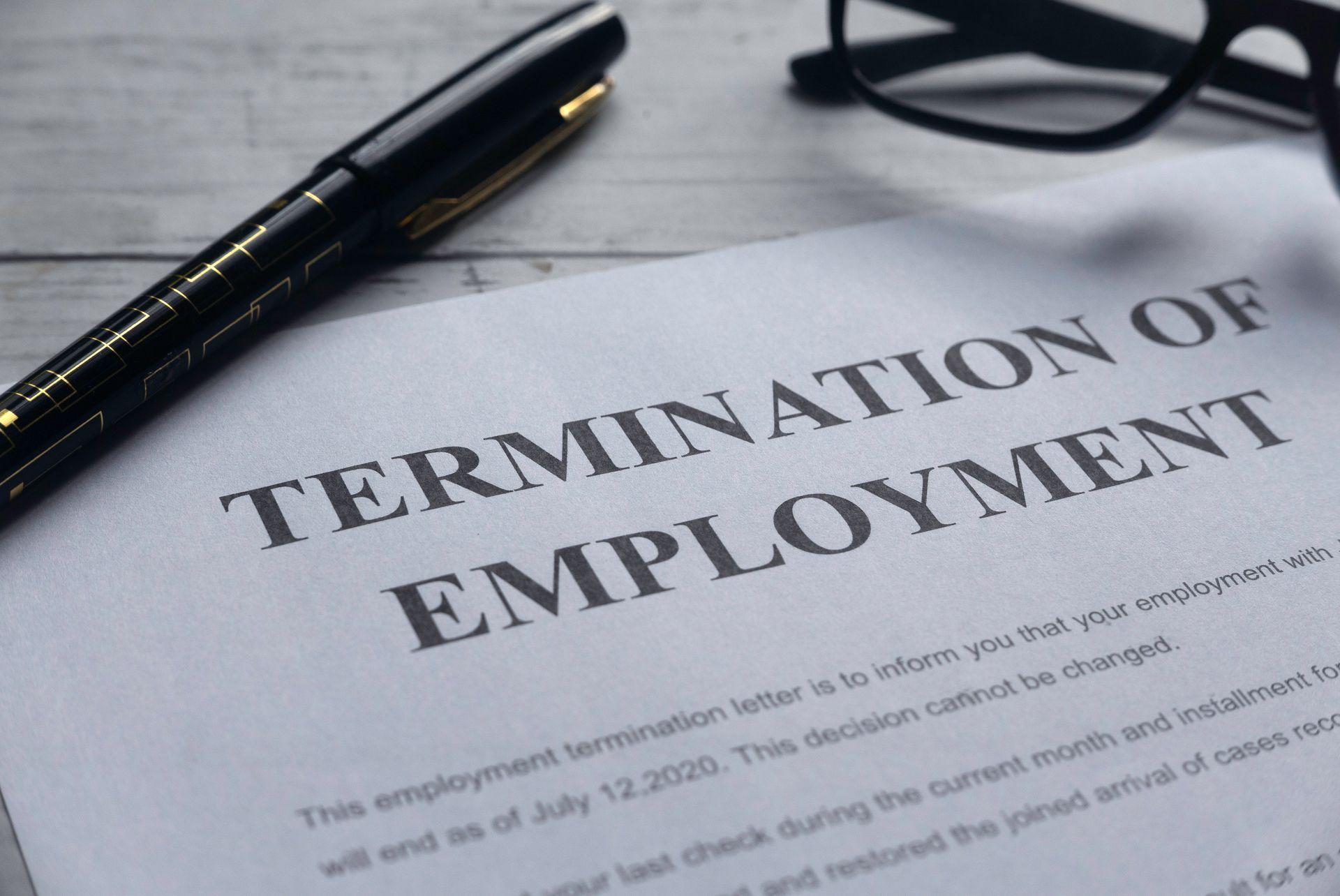Blog

Wrongful termination lawsuits are a serious concern for businesses, as they can damage a company’s reputation and result in significant financial losses. To minimize the risk of such claims, employers should strive to draft employment contracts carefully and follow best practices that protect their legal interests while maintaining fairness for employees.
What Is a Wrongful Termination Lawsuit?
Wrongful termination occurs when an employee is fired in violation of the law or their employment agreement. This could include discrimination, retaliation, breach of contract or firing someone in violation of public policy. Employers can minimize risks by ensuring employment contracts are clear, legally compliant and aligned with their business policies.
Key Elements to Include in Employment Contracts
A well-drafted employment contract is your first line of defense against wrongful termination claims. Employment contracts should ideally contain:
At-Will Employment Clause
In most states, employment is presumed to be “at-will,” meaning either the employer or the employee can terminate the relationship at any time, for any lawful reason, or no reason at all. Explicitly including an at-will employment clause in the contract reinforces this understanding and minimizes confusion.
However, at-will clauses must be carefully worded. Avoid language that implies job security unless it’s intentional, as that could create a basis for breach of contract claims.
Clear Termination Procedures
Specify the circumstances under which an employee may be terminated. This includes outlining acceptable grounds for termination, such as:
- Poor performance
- Misconduct
- Violation of company policies
- Redundancy or business restructuring
Clearly defining these terms reduces ambiguity and helps demonstrate that a termination was lawful and justified.
Detailed Job Descriptions and Expectations
Include a thorough description of the employee’s role, duties and performance expectations. This ensures both parties understand the scope of the job and what constitutes underperformance. It also provides a measurable standard to justify termination if an employee fails to meet expectations.
Non-Discrimination and Compliance Clauses
Include language affirming the company’s compliance with federal and state labor laws, including anti-discrimination statutes. A clause stating that terminations will be based on lawful, non-discriminatory reasons can strengthen your case if a lawsuit arises.
Dispute Resolution Clause
Consider adding a dispute resolution clause that requires mediation or arbitration before litigation. This can help resolve conflicts more efficiently and reduce the likelihood of costly courtroom battles.
Severance and Final Pay Details
While severance is not always required, offering it can provide protection in the event of termination disputes. Specify the conditions under which severance and final paychecks will be paid and ensure compliance with the Fair Labor Standards Act (FLSA).
What to Avoid in Employment Contracts
Just as important as what you include in an employment contract is what you leave out. Certain terms can inadvertently increase the risk of a wrongful termination claim or violate legal protections.
Vague or Overly Restrictive Language
Ambiguous terms or overly restrictive policies can backfire. For example, non-compete clauses must be reasonable in scope, duration and geography, or they may be unenforceable. Similarly, vague performance expectations can open the door to disputes.
Implied Job Security
Avoid language that suggests employees have guaranteed job security, such as promises of “long-term employment” or “permanent positions.” Such phrases could be interpreted as a binding promise, undermining the at-will nature of employment.
Unenforceable Terms
Employment contracts must comply with federal, state and local labor laws. For example:
- Failing to follow wage and hour laws could lead to a lawsuit.
- Requiring employees to waive their right to report legal violations (such as harassment) is unenforceable.
Unrealistic Probationary Periods
While probationary periods can help employers assess a new hire’s capabilities and fit for their role, these periods should be reasonable. Extending these periods unnecessarily or without justification could be viewed as unfair or discriminatory.
Best Practices Beyond the Contract
In addition to well-drafted contracts, employers should implement policies and practices to support their legal position:
- Document Performance:
Maintain detailed records of employee performance, evaluations and disciplinary actions.
- Follow Termination Policies: Terminations should be consistent with the company’s procedures and provide employees with a clear explanation.
- Train Managers:
Educate supervisors on how to handle disciplinary issues and terminations to reduce the risk of missteps that could lead to claims.
- Seek Legal Counsel: Regularly review contracts and policies with an experienced employment attorney for compliance and alignment with evolving laws.
Experienced Atlanta Business Liability Defense Attorneys
Businesses in Atlanta facing liability lawsuits can turn to the Law Office of Cameron Hawkins for experienced defense services. Contact us to schedule a consultation or give us a call at 678-921-4225 to discuss your situation.











